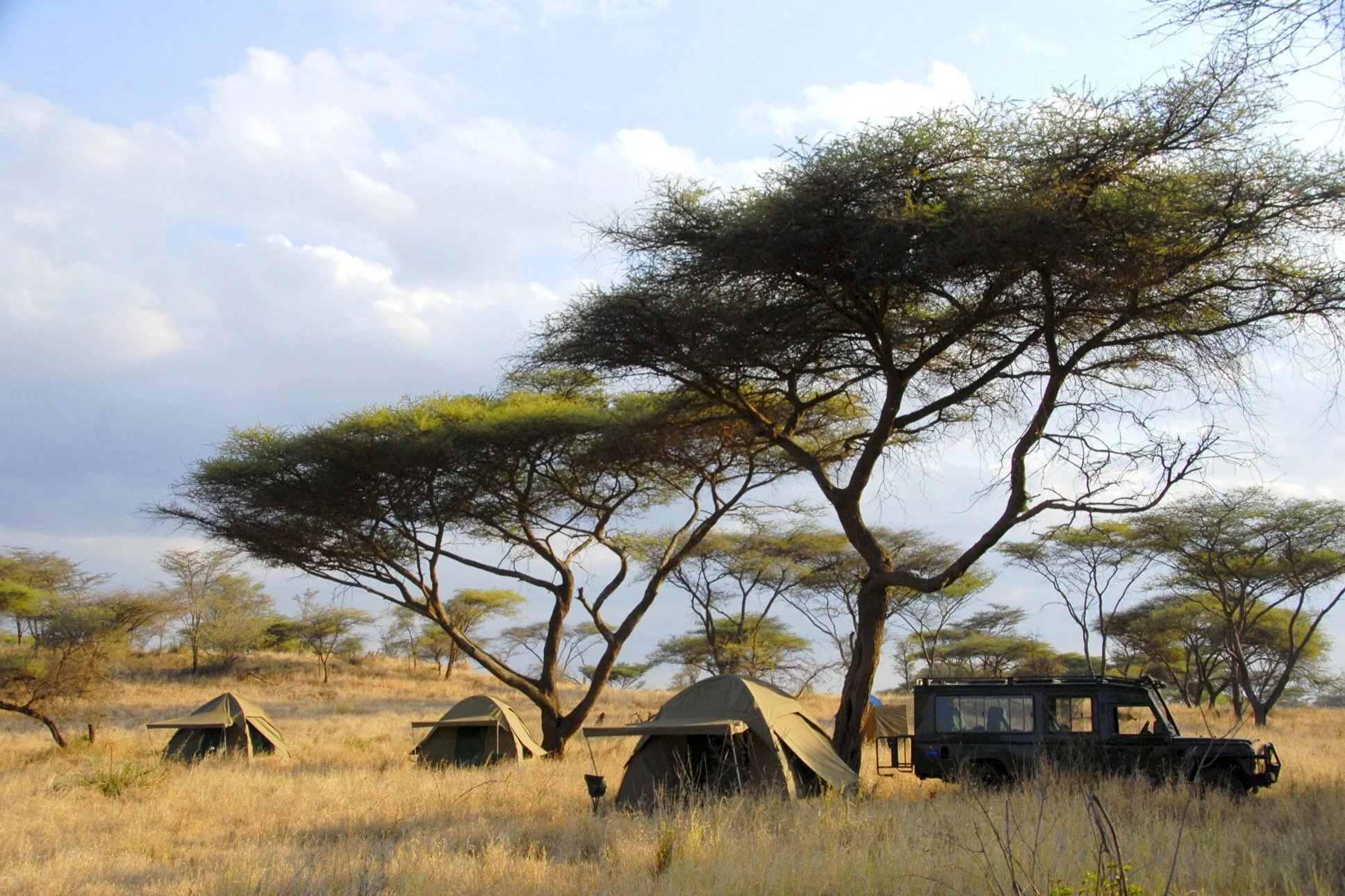Leave no trace camps
For us, it all comes down to how you really operate as a safari company, from the footprint of your camps to the payment of your guides. Quite simply, a company can make all the donations in the world, but if it is leaving a huge footprint on the landscape, then something is wrong. We believe our lightweight walking safaris represent the lightest impact safari travel in Africa.
How we do it:
Carbon off-set: We work with Carbon Tanzania.
No charcoal: We never use charcoal which is sourced locally from cutting trees.
Carry in/carry out: Unlike larger camps, all water is taken in and not sourced from the land.
On foot: Lowest impact travel possible.
Solar-heated shower water.
Solar lighting.
No plastic water bottles: All our water is from our own clean and tested source.
Locally sourced and often organic foods.
Small crew: Our walking camps will have only a 2-3 man crew, lightening the human impact on each area we camp in.
Seasonal movements: Moving camp regularly allows whole areas in the wilderness to be ‘at rest’ without the presence of humans for extended periods of time.
Lightweight vehicles: Our mobile camp and 2-3 man crew can all fit in one land cruiser pick-up, avoiding the need for larger, lorry-type camp vehicles which do extensive damage to the land.
Maintain the ‘spirit’ of wilderness: In our vast walking areas throughout Tanzania, we have stubbornly refused to give in to the wave of luxury travel and have maintained our insistence that no permanent infrastructure is put up in the remote wilderness. No roads, no lodges, no impact. This keeps the ‘wild’ in wilderness. After 25 years, it is still a privilege for us to explore these areas. And for these efforts we were honored to be recognized by National Geographic’s World Legacy Awards in “Conserving the Natural World” category.
> Awards & Press
Working Throughout Africa
We headed the team producing the successful nomination for UNESCO for the Richtersveld World Heritage Site on South Africa's border with Namibia, the most botanically diverse desert in the world, where half of all succulent plants occur.
With financial assistance from UNDP, we led the project for an emerging coastal reserve on the remote northwestern coast of South Africa, an area of importance for birds, lichens and rare plant species.
With a grant from Conservation International, we spent a year assisting the Richtersveld community in South Africa develop a 160,000 hectare mountain desert nature reserve in a global Biodiversity Hotspot.
We wrote the first ever State of Environment Report for Zanzibar, providing a baseline environmental snapshot of the island for the Environment Ministry of Zanzibar.
Conserve land & support communities
For as long as we have guided safaris, we have helped local communities protect their natural resources.
Some current efforts include:
The Simanjiro Grazing Easement: Protecting 2/3 of the critical calving grasslands for wildebeest and other wildlife from Tarangire National Park, as well as supporting local Maasai grazing areas.
Maziwe Island: Assisting with sea turtle-egg re-location and boat patrols on Maziwe Island, a coral reef marine reserve on Tanzanian coast. The project works with the local fishing communities to become vested stakeholders in marine conservation.
The Maasai Steppe: Undertaking various efforts to help Maasai communities plan, zone and manage land use in this vital habitat.
Yaeda Valley. Supporting local efforts to support the Hadza hunter-gatherer community zone and manage their land.
The Serengeti de-snaring project
In the Serengeti ecosystem, the greatest poaching threat is not from guns, but from snares: crude wire traps which are situated in wildlife corridors. Poachers target wildebeest, zebra, giraffe and just about any other animal for bushmeat to sell in the local villages.
But snares are indiscriminate. We have seen lions caught in snares, hyenas with snares wrapped around their mouths and elephant too. Snaring is illegal, inhumane and kills tens of thousands of large mammal species in Serengeti National Park alone. But how to remove them all?
With much of the park inaccessible wilderness, a new strategy was created in 2017 by Frankfurt Zoological Society, Tanzania National Parks Authority and a group of concerned tour operators. We are part of this team which funds mobile units of rangers and ex-poachers to rove the Serengeti and remove snares. In 2018, 17,000 snares were removed and the progress is remarkable.
Conservation needs will and creative solutions. Your safari with us contributes to this effective cause.





